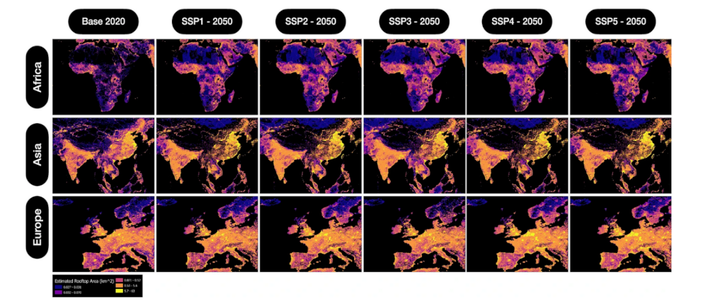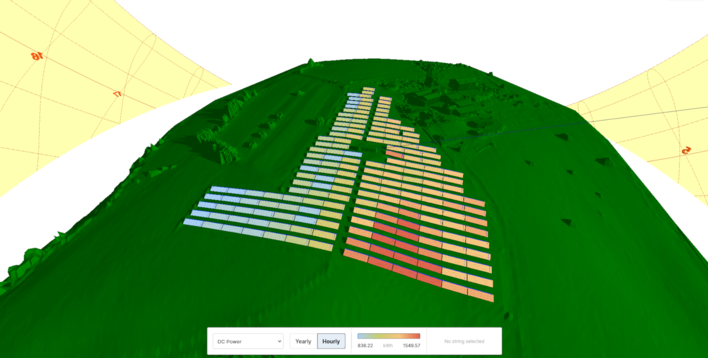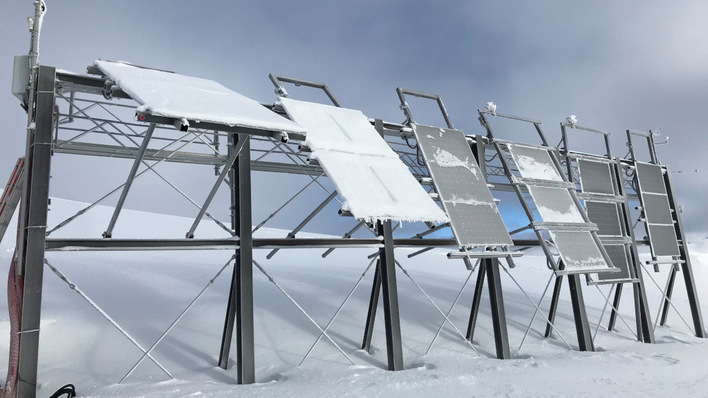This is where Switzerland and its capital Bern is at when it comes to the weather: To the south is Italy, to the east the Alps stretch off towards Austria, to the west the landscape opens out and is dominated by the Mediterranean and the Atlantic.
North is the Allgäu and the Swabian Jura mountains, with Lake Constance in between: descending alpine foothills, each in itself a little weather divide. If a place can be said to be at the heart of European weather, it is Switzerland, which also has some of the highest peaks, eternally covered in ice and snow.
The way to plan solar generators
So it is not surprising that Bern should have brought forth one of the major players in the energy transition: Meteotest, supplier of data on solar irradiation, on weather and on climate.
Without access to precise data on solar irradiation anywhere on Earth, it would be impossible to plan, build and run solar generators. “We started out as a cooperative as early as 1981,” says René Cattin, one of Meteotest’s CEOs when we went to see them in Bern. “Back then, a group of geographers came together. It was a university spin-off.”
Only by hearsay
Cattin is young enough to know of those days only from legends told by the old guard, who occasionally drop by the office or still work there. Today, he leads 40 employees. Meteotest is still run as a cooperative, where, as in Germany, every member has one vote.
That distinguishes it from a corporation, where the voting rights depend on the size of a member’s company share. “About one third of our members hold shares in the cooperative,” Catting sais. “Cooperative sounds a little like holiday camp, but we are a company that is run on economic principles and has to pay taxes just like any other.”
IBM’s desperate measure
1981 – over three decades ago. The founders were all young people back then. Money was tight, even in Switzerland, centre of high finance. It takes less equity to start a cooperative compared to a corporation. Also, the zeitgeist was different in those days: It was a time of revolution – 1981 was the year that IBM introduced the first personal computer, and a certain William Gates came up with the operating system for it.
The PC was a desperate attempt by IBM to overcome the crisis in sales of mainframe computers. Who would have predicted then that the computer industry would take off as it has? At the time, computer technology was at the same junction as photovoltaics are today.
And the PC creates unimagined possibilities for both technologies. “The PC allows anyone to use weather data,” says René Cattin. “Before, that would only have been possible with a super computer.”
Gathered by analogue means
Historically, weather data has been gathered by analogue means since the mid-19th century. Later on, digital systems recorded solar irradiation, temperatures, pressure, precipitation and wind. This digital data was then entered into super computers that filled large rooms and needed small power plants to run. At first these used vacuum tubes, later came the silicon chip. The coming of the PC gave rise to the question: What new possibilities are there for processing weather data?
Some people from way back are still with the company, but the next generation is pushing ahead. Meteotest is one of the oldest private companies in Europe devoted to the business of weather data. “This is all about big data,” Jan Remund explains, who is the specialist in charge of solar energy and climatology at Meteotest.
He has been with the company for 22 years and is a little bit like the brains behind the the operation. “We use data from over 8,000 weather stations around the world that have varying parameters and time intevals. The volume of data from these weather stations and satellites amount to a few terabytes.” The business is not just founded on providing up-to-date weather data, but more importantly on years of experience in interpreting and presenting it. (HS/HCN)
Part two coming soon: Swiss Precision on the Rooftop of the World
Use our service, get your free solar irradiation data
Stay informed, get our free newsletter twice a week. Register here.
More useful information:







